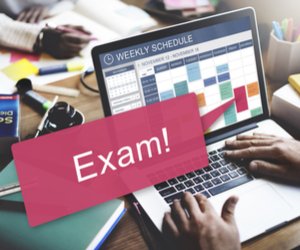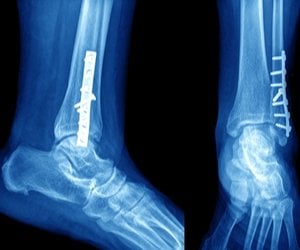Walking out of the test center after I had completed the MCAT was a surreal experience. Somehow, the far-off test date for which I had been preparing for months had not only arrived, but had already passed. I was suddenly and thankfully in possession of all of the components of a complete medical school application, as an MCAT score was the last blank space to fill on my impending AMCAS application.
premed
The Joy of the Perfect Candidate: A Conversation with Susan Mulroney, PhD
Sometimes, Susan Mulroney, PhD, professor and director of the special master’s program at Georgetown Medical Center, wonders how she got so lucky.
“I wonder- how did people let me get this job? How did I get this career? I was going to be a medical researcher. That was wonderful, and I loved that, but as soon as I started teaching medical students, it was like, oh my God, I love this. This is amazing.”
Osmosis Co-Founders Ryan Haynes and Shiv Gaglani
Ryan Haynes, PhD and Shiv Gaglani, MBA discuss how they went from anatomy partners to the founders of Osmosis, an advanced learning platform that helps medical & other health professional students succeed in classes, on board exams, and in the clinic.
Tell us about yourself
Ryan: I’ve had a longstanding interest in how the brain works. Before attending Hopkins for med school I did a PhD in neuroscience at Cambridge studying decision making. I now live in Charlottesville, Virginia where my wife is a resident in neurology at UVA.
Shiv: I am passionate about developing scalable solutions in the fields of healthcare and education. I attended Johns Hopkins School of Medicine between 2011-2013 and then took a leave of absence to co-found Osmosis as well as complete an MBA at Harvard Business School. I’m now based back in Baltimore where my fiance, Malorie, is an OB/GYN resident at Johns Hopkins.
The Other Medical School: A Detailed Look at a Podiatric Medical Training
Hi! My name is Courtney, and I am currently a third year Podiatric Medical student from Indiana, studying in Ohio. I hope that I can help those of you reading this learn a little more about the field of podiatry and what it is like to be a Podiatric Medical student.
Specialties and Practice Settings as a Physical Therapist
What is Physical Therapy? Chances are, you’ve heard of physical therapy (PT). Perhaps you have … Read more
How Do College and Medical School Classes Differ?
As a premedical student, you are likely familiar with some of the subjects that are covered in the standard medical school curriculum. After all, how different could biochemistry in medical school be from undergraduate biochemistry?
While your premedical courses will certainly provide you with a strong background with which to approach medical school, it is imperative that you understand that undergraduate classes differ substantially from medical school courses in both difficulty and breadth of content. Think of your undergraduate science education as preparation for medical school—not as an opportunity to cover all of the material in one of your medical school classes prior to matriculation. Here are four key ways in which medical school courses differ from undergraduate classes, as well as some tips on how to deal with these differences:
How To Stay Afloat As A Premed
Sometimes it feels like prepping for med school really is like bracing yourself against the … Read more
Considering Rejection: Lessons Learned From an ESL Classroom
I was seated on a child-sized plastic chair along a wall in the classroom when the teacher summoned me to the front of the room. She handed me a sheet of stickers and, in broken English that was heavily accented, indicated that my task was to watch the approximately twenty children in front of me as they practiced their English vocabulary and reward those who performed the best. This was several weeks into my six-week adventure of teaching English in China during a gap semester after graduation; this was nine months after beginning my application cycle for medical school that remained an open-ended endeavor yet to discover its fate.
Four Tips for Completing Your AMCAS Application
The 2018 AMCAS application cycle has started! If you plan to apply to attend medical school starting in Fall 2018, the application is now open for you to begin working through the nine different sections of the application. While the application is straightforward, it can be easy to make simple mistakes that can delay the verification process. To help you fill out an application that may be processed faster, we asked for tips from the AMCAS Verifications Team, as they review and process thousands of AMCAS applications each year. The Verification Team provided us with some important tips to help you avoid making mistakes and ensure your application gets successfully verified.
The Prospective Physician’s Guide to Medical School Interviews
You have a great MCAT score, a strong GPA, and have represented yourself and your ambitions to the best of your ability in your medical school admissions essays. Now it seems like the only task standing between you and admission to medical school is interview season—and you have some questions.
When will you be offered a chance to interview? If you are lucky enough to be chosen for an interview, what should you wear? What about transportation to and from the interview, as well as hotel costs? And perhaps most important of all, how can you prepare to impress in different interview formats? Here is your short guide to medical school interviews:
Casper for Medical School Admissions: What to Expect and How to Prepare
Introduction & Background The CASPer (Computer-based Assessment for Sampling Personal Characteristics) test is a 90-minute … Read more
Conquer the Obstacle Course of Medical School By Building Multiple Strengths
Everyone has this perfect image of how fun medical school is when they enter. You daydream about working with patients and saving lives from your first year, but the reality is, medical school is a giant obstacle race. Many people say that it is a marathon, but I do not think that this is accurate. A marathon requires you to be a good runner. Marathon training is gruesome and tiring, but the focus is on increasing your mileage until you feel confident that you can achieve the 26.2 miles on race day. Obstacle race training, on the other hand, is a little more dynamic. You must train yourself to be able to handle the long mileage of running the course, but you also have to develop your body and mind to conquer obstacles requiring strength, agility, strategy, and overall grit. In my drawn-out analogy here, obstacle race training is the “preparing to apply for medical school” stage and the actual application and interview seasonCon is the beginning of your long obstacle race that ends with a medical degree. I will come back to these two points, but first I would like to elaborate on why medical school is an obstacle race.
10 Tips to Prepare for the AMCAS Application Opening
Updated December 1, 2021. The article was updated to correct minor grammatical errors and technical … Read more
If At First You Don’t Succeed, Try (Try, Try, Try) Again
You are an applicant (or reapplicant) in the current medical school admission cycle who has … Read more
Keeping the Cynic out of the Clinic: Books to Renew your Love of Medicine
Most people don’t associate being a premed with relaxation. Outsiders imagine your existence as a … Read more
Is a Combined Bachelor’s/MD Program Right For You?
By Jessica Friedman
For students who are fully committed to a career in medicine, combined programs – those that grant you acceptance to both undergraduate college and medical school – can be a great option. They allow you to earn a bachelor of arts or science and a medical degree and are called BS/BA-MD programs. Some programs are as long as 8 years (4 years of college and 4 years of medical school), some are 7 years (3 years of college and 4 years of medical school) and a few are 6 years (2 years of college and 4 years of medical school). The more abbreviated programs are especially rigorous since you complete your college degree in a shorter time. Students in these programs often are in school year round.
Before deciding to apply to combined programs, you should understand the plusses and minuses of doing so.
The Changing Landscape of the Multiple Mini Interview
The Multiple Mini Interview (MMI) was first adopted by McMaster University in Ontario, Canada at the Michael G. DeGroote, School of Medicine back in the early 2000s. Initially, MMIs were used strictly during the admissions process for medical school.
For starters, depending on the specific program where you interview, your MMI circuit will likely consist of 6 to 12 stations and may include rest stations. There will be as many participants in your interview circuit as there are stations. The instructions for each station are typically posted directly outside of each room and you are given up to two minutes to carefully read the prompt prior to entering the room. At the end of the two minutes, a bell will sound and this is your cue to enter the room. Typically, a bell ringer type method is used to keep track of the time and you will be allocated six to eight minutes for each station before moving on to the next station.
Finding Clinical Opportunities: Show Up, Ask, and Follow Through!
I was recently asked to give advice on finding clinical opportunities. Here’s the short version: show up, ask, and follow through! This is an exciting and supportive profession you are entering. Physicians not only remember what it feels like to be in your shoes but they are eager to support you. Part of our responsibility in medicine is to educate and mentor the next generation. This applies to everyone from a first-year medical student all the way to the most seasoned attending. I’ve had opportunities to tutor my classmates, write for Elsevier, deliver a heart from its pericardium, coordinate a helicopter landing and practice my old fashioned medical skills on the 7th continent all because I have shown up, asked for opportunities, and followed through when given the chance. Here are a few notes on how I approach gaining these clinical opportunities.
The Art of Writing Medical School Secondaries
I always think of secondaries as the real meat of the med school application process. … Read more
Improve Your CARS Reading Speed by Quickly Finding the Main Idea
The CARS section of the MCAT Exam can be really scary. It’s not that you don’t know how to read. The problem is that you don’t know how to read critically, and that’s a whole different way of analyzing a passage. Trying to decipher a CARS passage with the same skills that you use to read a science text is like trying to play tennis with a golf club. You need different tools, and the first tool you need to help you read faster and have a clear understanding of a passage is a basic knowledge of Rhetoric.




















